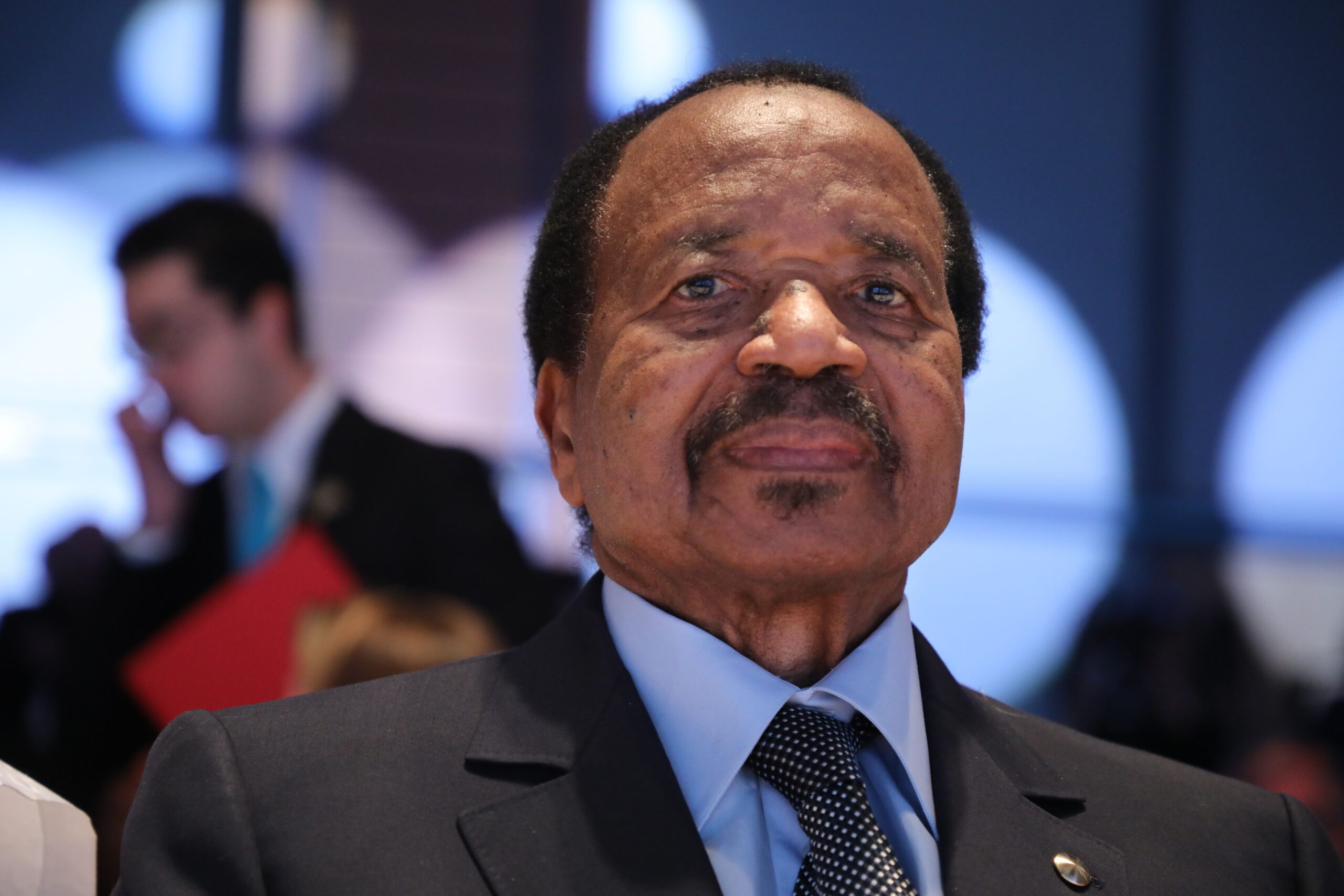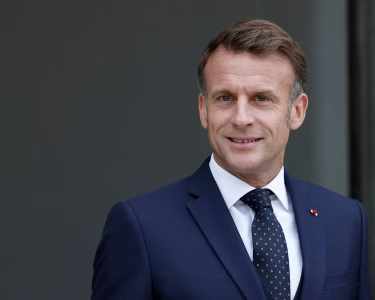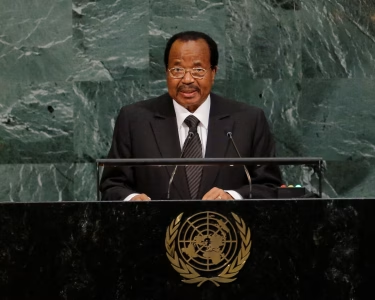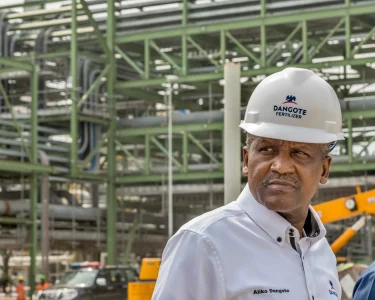- Summary
- Biya has ruled Cameroon since 1982
- Leading opposition candidate in 2018 disqualified this time
- Former spokesperson draws large crowds at rallies
YAOUNDE, Oct 9 (AfrikTimes) — Cameroonian President Paul Biya is seeking an eighth term in Sunday’s election, a victory that could keep him in power until nearly 100, as he faces growing public frustration with his decades-long rule and an energetic challenge from a former government spokesperson.
Biya, who first took office in 1982, has maintained an unyielding grip on power for more than four decades. He scrapped presidential term limits in 2008 and has since secured re-election by wide margins. His government has repeatedly denied allegations of ballot rigging and judicial manipulation to eliminate rivals.
Maurice Kamto, Biya’s main opponent in the 2018 election, has been barred from running this time, and the remaining opposition candidates have failed to unite behind a single challenger — a division that strengthens Biya’s re-election prospects.
The 91-year-old leader makes few public appearances, fueling persistent speculation about his health. The government last year banned public discussion of the issue.
 Supporters of Cameroon’s 92-year-old President Paul Biya, who is seeking an eighth term, hold signs during the launch of his electoral campaign, in Maroua, Cameroon, October 7, 2025. Sign in the center reads “The Kanuri community supports Paul Biya”.
Supporters of Cameroon’s 92-year-old President Paul Biya, who is seeking an eighth term, hold signs during the launch of his electoral campaign, in Maroua, Cameroon, October 7, 2025. Sign in the center reads “The Kanuri community supports Paul Biya”.
Biya attended his only campaign rally on Tuesday in the northern city of Maroua, where he thanked supporters for their loyalty “despite the false omens, the slander, the fabrications.” Acknowledging widespread complaints over poor infrastructure and unreliable electricity in the cocoa- and oil-producing nation, he said:
“I am well aware of the problems that are of concern to you. I am aware of the unfulfilled expectations that make you doubt the future. I can assure you that these problems are not impossible to overcome.”
Former Spokesperson Turns Challenger
The most prominent challenger in this election is Issa Tchiroma Bakary, a former government spokesperson and employment minister who defected in June.
Tchiroma has accused Biya of mismanaging Cameroon’s resource wealth, saying the country has become overly dependent on international financial institutions.
“Their failure is everywhere,” he said during a campaign stop. “All Cameroonians are fed up with their management.”
 Supporters of Cameroon’s 92-year-old President Paul Biya, who is seeking an eighth term, hold a sign during the launch of his electoral campaign, in Maroua, Cameroon, October 7, 2025. The sign reads “The Toupouri people united behind Biya”.
Supporters of Cameroon’s 92-year-old President Paul Biya, who is seeking an eighth term, hold a sign during the launch of his electoral campaign, in Maroua, Cameroon, October 7, 2025. The sign reads “The Toupouri people united behind Biya”.
While Tchiroma’s rallies have drawn large crowds, analysts remain cautious about whether that enthusiasm will translate into votes.
“One is left with the impression that if this mobilisation is transferred into the ballot box, then change is coming,” said political analyst Pippie Hugues. “However, the reverse might be true. We saw similar energy in 2018, and nothing changed.”
Raoul Sumo Tayo, a senior researcher with the Pretoria-based Institute for Security Studies, said Tchiroma might perform strongly in urban areas but faces challenges in rural regions, where the ruling party’s entrenched patronage networks remain dominant.
“The ruling party is likely to be declared the winner of the election,” Tayo said. “Nevertheless, Tchiroma has demonstrated a strong ability to mobilise support to contest the results.”
Twelve candidates are on the ballot, and Cameroon does not hold run-offs — meaning the top vote-getter on Sunday will be declared the winner. Official results are expected within 15 days.
 Cameroonian President Paul Biya and first lady Chantal Biya attend a political rally in Maroua, Cameroon, on October 7, 2025.
Cameroonian President Paul Biya and first lady Chantal Biya attend a political rally in Maroua, Cameroon, on October 7, 2025.







